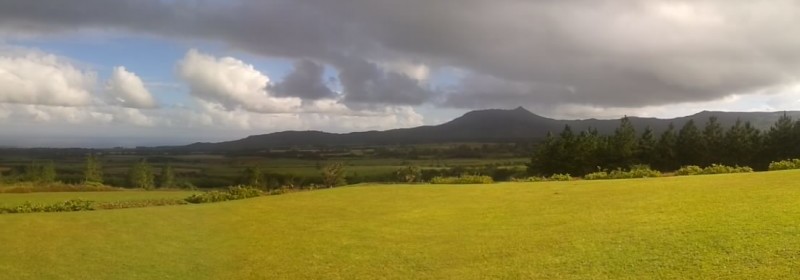
A smooth bewitching smell spreads in most Mauritian homes every morning. The sweet vanilla mixed with the delicacy of milk arouses taste buds. It is the signal that a new day is beginning, that it is a time to take a break from a long day at work, to meet some friends or simply to enjoy some calmness. This mesmerizing smell is no other than tea.
Commonly called “dité” – spelled jee-thay – in Creole, tea has been omnipresent in Mauritian life since the colonial period, around the 1800s, where the British brought the habit of tea time with them. Brought from Sri Lanka, tea plants were cultivated for exports and for the use of the population. However, this industry declined with the rise of the sugar industry during the 1990s which was more competitive at that time. Since then, tea plantations decreased substantially to give place to sugar cane fields or residential areas. Nowadays, only two major factories survived, The Corson Tea Estate and the Bois Chéri tea factory owned by St. Aubin Ltd.
La Route du Thé
The absence of tea in a Mauritian home can be qualified as a blasphemy. It is always polite to offer some tea to visitors whether it is Chinese tea or the pure Mauritian one although Chinese tea tends to be offered by the Sino-Mauritians only. Employers are also required to prepare a budget to offer tea, milk and sugar to their employees at any time of the day. Early in the morning, teas are sold in markets known as “bazaar” in Mauritian Creole. They are also widely available in every traditional shops or supermarkets on the island. A variety of tea with fancy different tastes e.g exotic fruits is present on the market now.https://web.archive.org/web/20161128170548if_/http://www.youtube.com/embed/944dJKfm31k
The discovery of tea can be an amazing experience. Fortunately, St. Aubin Ltd designed a journey to make you explore the history behind teas, its manufacture and its taste in its various form. Best known in French as “La Route du Thé”, which literally translate to the road of tea, the journey starts at the Domaine des Aubineaux found at Forest Side. One of the last colonial houses of Mauritius was built on that estate. The house was kept with its traditional portraits and furniture. You will still feel the antique of the environment. It’s like a travel backwards in time. You will also be invited to drink tea in the tea lounge of the house. The surrounding garden overflows with endemic and exotic plants.
Bois Cheri Tea Factory
The journey continues at the second step of the route which is found at Bois Chéri. A tea factory is set up there surrounded by a large tea field as far as the eye can see. The factory is divided into two sections. The first section contains the museum and the second one accommodates all the machinery required to process the tea leaves. You will be able to see the enormous machines in the manufacturing section from the museum through a large glass pane. Travelling further more into the inner estate, a welcoming chalet shelters a cosy restaurant with a breathtaking view on the south of the island. The exquisite menu includes different variations of tea used as an ingredient to season the main course and desserts. A tea degustation is offered by the restaurant on the balcony after the meal. The tea leaves proposed are mixed with different flavours like coconut, mint, vanilla and more. It’s pleasurable if you are an avid amateur of this beverage.
The last step brings you to the Saint-Aubin found at the south of the island. The colonial house of former administrators of the sugar estate was built there with wood from demolished ships. Its peacefulness can be compared to spas. A restaurant proposes pure Mauritian Creole cuisine with ingredients grown in the surrounding garden and poultry raised in the mini-farm of the estate. A small manufacture of traditional rum, made from sugar cane juice, is also present there. The rum is quite strong with a slight sweet taste. It is also available in different flavours. The most common are vanilla and coconut. An independent Creole house has been transformed into an inn and can welcome you for a marvellous week-end.
“La Route du Thé” is the only attraction which will make you travel back to the colonial period where the tea industry was much more important. It is not to be missed. Mauritians’ tea obsession is also not to be neglected. Happy is the Mauritian expatriate who is offered a vanilla flavoured packet of tea. This beverage will not be forgotten or replaced anytime soon.